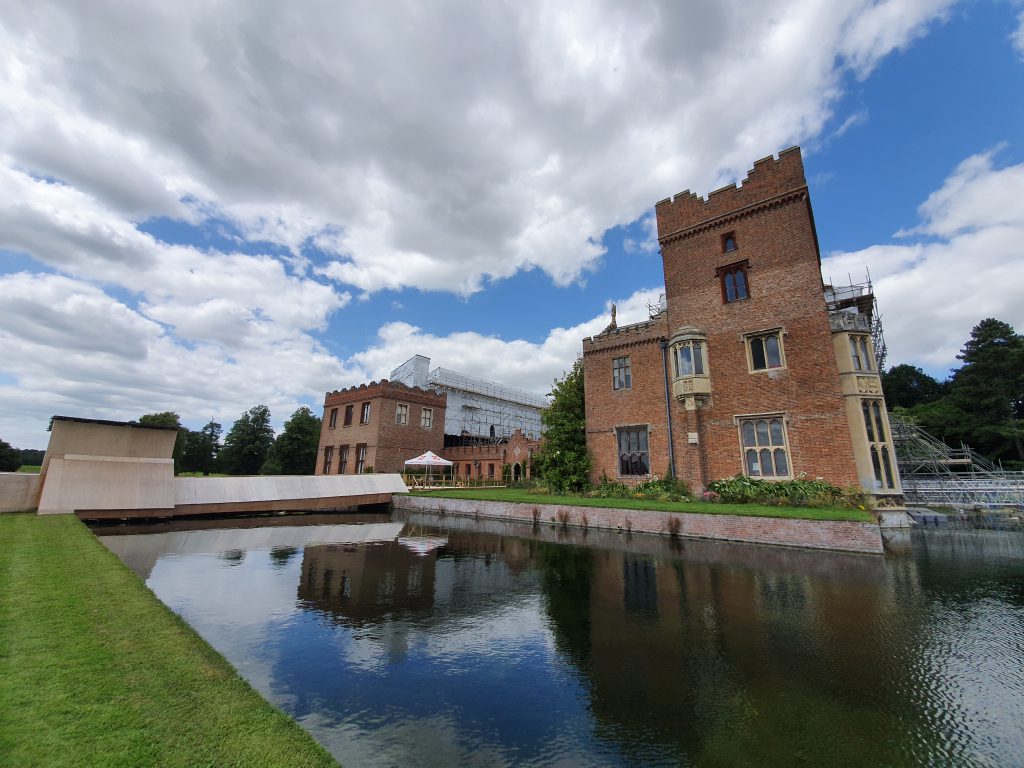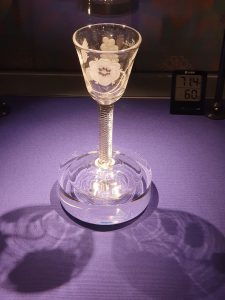Oxborough – Oxburgh Hall (Secret Jacobite Drinking Glass)
This is one of eleven glasses that were commissioned by Sir Henry Arundell Bedingfeld (1689-1760) and the National Trust has done a fair chunk of research on what the glass represented. As an aside, the glasses were all sold in 1908 and all bar this one has gone missing. This particular glass is on temporary loan from the Drambuie Collection and the research conducted received some widespread media attention earlier on in the year.
It seems that Bedingfield was a supporter of the Jacobite movement, a plot to return the House of Stuart to the British throne. James Francis Edward Stuart (1688-1766), who was for a few months the Prince of Wales and would have been King if it hadn’t been for the Glorious Revolution of 1688 which placed William III on the throne. Bedingfield supported the restoration of the Catholic James Francis Edward Stuart, which meant opposing the Kingship of the Protestant King George II.
The glasses were probably made in the 1750s, when it was prohibited for anyone in the country to drink to the health of the Stuarts. So, the glasses were made with hidden messages such as the rose and twin buds, which were meant to represent James Francis Edward Stuart, along with the inscribed ‘fiat’, meaning ‘let it come to pass’.
As for the other ten glasses in this collection? I imagine most people wouldn’t have ever even begun to have recognised the significance of the glasses, so they could be anywhere today, even supposing they’ve survived. It’s a nice find, but without the National Trust offering an explanation and background, I wouldn’t have had a clue what it represented.





